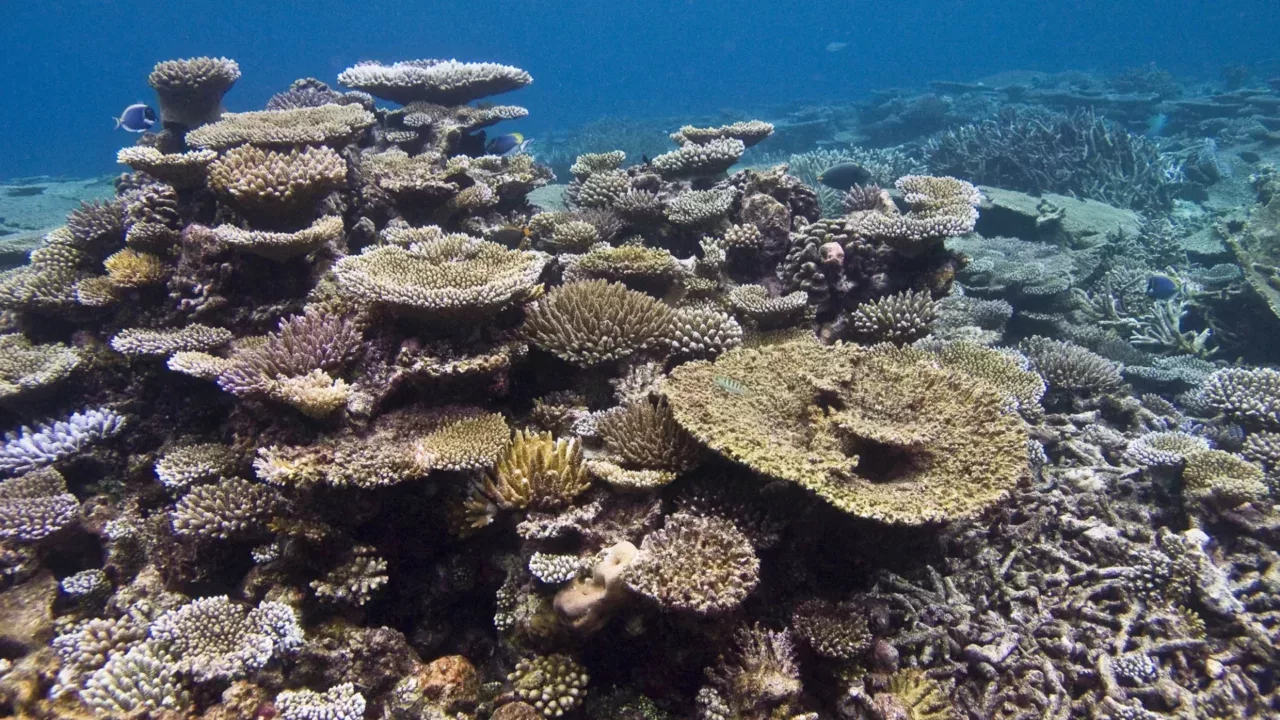The ‘Restoring Marine Ecosystem Services by Rehabilitating Coral Reefs to Meet a Changing Climate Future’ regional project in Mauritius and Seychelles was launched at the Hennessy Park Hotel, Mauritius by Hon. Flavien Joubert, Minister of Agriculture, Climate Change and Environment of the Republic of Seychelles. Hon. Joubert, in his address, expressed the hope that the project would contribute towards the alleviation of climate change impacts and extend best coral restoration practices to communities and NGOs.
This UNDP-implemented coral restoration project will provide for the establishment of land and ocean-based coral nurseries, with a view to restoring 3.2 hectares and 2.5 hectares of degraded sites in the Republics of Mauritius and Seychelles respectively. The overall objective of this US$ 10 million six-year project financed by the Adaptation Fund is to reduce the impact of climate change on coral reef-dependent economic sectors in Mauritius and Seychelles by implementing coral reef restoration with thermal tolerant corals. The massive coral bleaching events and other adverse anthropogenic activities which have severely affected coral reefs in Mauritius were noted by Mr Daby, Senior Chief Executive of the Ministry of Blue Economy, Marine Resources, Fisheries and Shipping of the Republic of Mauritius, who delivered the message of the Minister.
The key project partners in Mauritius are the Ministry of Blue Economy, Marine Resources, Fisheries and Shipping, the Mauritius Oceanography Institute, the Albion Fisheries Research Centre and NGOs. In Seychelles, the Ministry of Agriculture, Climate Change and Environment, the Seychelles National Park Authority, Nature Seychelles and the Marine Conservation Society of Seychelles are the primary stakeholders.
Ms Amanda K. Serumaga, Resident Representative of the United Nations Development Programme for the two countries, underlined the regional and capacity-building aspects of the project:
“Coral restoration activities are happening globally and it is important to share lessons learnt and knowledge acquired. To this effect, the project provides for the setting up of a Regional Scientific Advisory Committee (RSAC) and as such provide a platform for knowledge management and sharing, training and sensitisation to build regional capacity for sustainable reef restoration.”
She also emphasised the importance of implementing activities on the ground at the earliest to help affected communities in the wake of the COVID-19 crisis and the Wakashio oil spill in Mauritius.
In addition to the restoration and knowledge management objectives, the regional project also aims to achieve a target of 860 persons with improved livelihoods from coral restoration activities and/or due to the improved coastal and marine ecosystems supported by the restored corals.
To learn more please contact:
- Mr Satyajeet Ramchurn, Head of Environment, UNDP Mauritius
- Ms Rachna Ramsurn, Regional Project Manager, AF Coral Restoration project
Source UNDP Press Release

